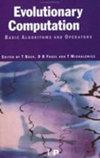基于迁移学习的协同代理进化双目标优化方法
IF 3.4
2区 计算机科学
Q2 COMPUTER SCIENCE, ARTIFICIAL INTELLIGENCE
引用次数: 11
摘要
大多数现有的多目标进化算法隐含地假设每个目标函数都可以在同一时间段内进行评估。典型的这在许多真实世界的优化场景中是站不住脚的,在这些场景中,对不同目标的评估涉及具有不同时间复杂性的不同计算机模拟或物理实验。为了解决这个问题,提出了一种基于代理辅助进化算法(SAEAs)的迁移学习方案,其中采用协同代理来建模快速目标函数和慢速目标函数之间的函数关系,并引入可转移实例选择方法来从快速目标的搜索过程中获取有用的知识。我们在DTLZ和UF测试套件上的实验结果表明,所提出的算法在解决目标评估时间不均匀的双目标优化方面具有竞争力。本文章由计算机程序翻译,如有差异,请以英文原文为准。
Transfer Learning Based Co-Surrogate Assisted Evolutionary Bi-Objective Optimization for Objectives with Non-Uniform Evaluation Times
Most existing multiobjective evolutionary algorithms (MOEAs) implicitly assume that each objective function can be evaluated within the same period of time. Typically. this is untenable in many real-world optimization scenarios where evaluation of different objectives involves different computer simulations or physical experiments with distinct time complexity. To address this issue, a transfer learning scheme based on surrogate-assisted evolutionary algorithms (SAEAs) is proposed, in which a co-surrogate is adopted to model the functional relationship between the fast and slow objective functions and a transferable instance selection method is introduced to acquire useful knowledge from the search process of the fast objective. Our experimental results on DTLZ and UF test suites demonstrate that the proposed algorithm is competitive for solving bi-objective optimization where objectives have non-uniform evaluation times.
求助全文
通过发布文献求助,成功后即可免费获取论文全文。
去求助
来源期刊

Evolutionary Computation
工程技术-计算机:理论方法
CiteScore
6.40
自引率
1.50%
发文量
20
审稿时长
3 months
期刊介绍:
Evolutionary Computation is a leading journal in its field. It provides an international forum for facilitating and enhancing the exchange of information among researchers involved in both the theoretical and practical aspects of computational systems drawing their inspiration from nature, with particular emphasis on evolutionary models of computation such as genetic algorithms, evolutionary strategies, classifier systems, evolutionary programming, and genetic programming. It welcomes articles from related fields such as swarm intelligence (e.g. Ant Colony Optimization and Particle Swarm Optimization), and other nature-inspired computation paradigms (e.g. Artificial Immune Systems). As well as publishing articles describing theoretical and/or experimental work, the journal also welcomes application-focused papers describing breakthrough results in an application domain or methodological papers where the specificities of the real-world problem led to significant algorithmic improvements that could possibly be generalized to other areas.
 求助内容:
求助内容: 应助结果提醒方式:
应助结果提醒方式:


